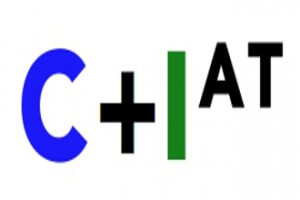Skills + High Degree of Innovation in Tax Administrations
The above equation refers to the integral development of skills on the basis of innovation elevated to tax administrations as maximum exponent.
 This translate into exponentially enhancing the intensive use of technology and new ways of imparting knowledge, to have a positive impact on the development of human talent in the tax administrations of the present century.
This translate into exponentially enhancing the intensive use of technology and new ways of imparting knowledge, to have a positive impact on the development of human talent in the tax administrations of the present century.
For example, the amount of information to which we have access every day, using our cell phones or any other mobile device is enormous, unparalleled to what we could access some few years ago, and this has generated a new form of communicating and interacting with other people, in all aspects.
Without realizing it, we have to learn how to process information and make quick decisions to resolve situations, even in our daily life, in the technological context of a completely networked society.
How many of you have had the experience of checking the prices of flight tickets or all inclusive hotel packages and vehicles rentals on Internet, and have subsequently regretted not having chosen the best available offers that result from the searches?
This implies the development of new abilities and personal skills, adapted to a reality where the obsolescence of the information is getting faster and plays a decisive role in the taking of personal, social and occupational decisions. Thus the self-management and the ability to learn, among others, are essential skills that should complement the professional knowledge required to develop any position or office in the workplace, or any other activity.
The intensive use of technology and new ways of imparting distance learning knowledge could have a positive impact to help us developing these new capabilities.
To cite some examples which are revolutionizing the periphery of traditional eLearning platforms or the «how to develop on-line education», we find the use of the g-Learning or video games, which philosophy relies on increasing the understanding and retention of new content, stimulating creative thinking and enhancing the capacity to plan, make decisions and solve problems.
Another form of open education, growing each day, is the application of massive open online course, (MOOC); they are free and rely on the idea of collaborative learning and exchange of information. Their greatest success lies in that they allow to merge the knowledge acquisition with the development of the skills required to put them into practice, through the resolution of specific tasks.
Moreover, the augmented reality is a tool that manages to combine the virtual spectrum with the real world; it is used to recreate actual work situations in simulated scenarios. It provides the opportunity to apply the acquired knowledge through practice or based on life experiences, allowing the participant to know the implications of the decisions taken and the consequences of mistakes, as well as analyzing these consequences without taking on any real risk.
How you can see, these new trends in the field of training and eLearning seek to overcome the limitations faced by the traditional platforms in the development of soft skills, through the use of more dynamic platforms that manage to test specific skills training.
Thus and with a transformative vision that promotes the ability to innovate, I would love my readers to think about the possibility of improving and making more efficient the training processes, through educational projects that facilitate learning platforms allowing participants to enhance their individual skills, by putting them into practice.
Imagine the possibility of having a video game that we would call the fall of Al Capone, where participants could simulate in a live simulation the role of an officer of the U.S Federal Government whose mission, in collaboration with the FBI, is to detect situations of noncompliance, inconsistencies, evasion and tax fraud committed by this character and finally causes him not only to fall but to be sent to Alcatraz prison.
The game would promote special situations for the practical implementation of the learned concepts and would provide a personalized feedback regarding the results and mistakes. This way, participants would learn how to perform an audit following the procedures of the case, while they get to increase their skills in leadership, analytical thinking, and divergent logic, their degree of intuition and research capacity, as well as better time management and work organization, in coexistence with habits that promote ethics, transparency and the integrity of the auditor.
1,804 total views, 2 views today
